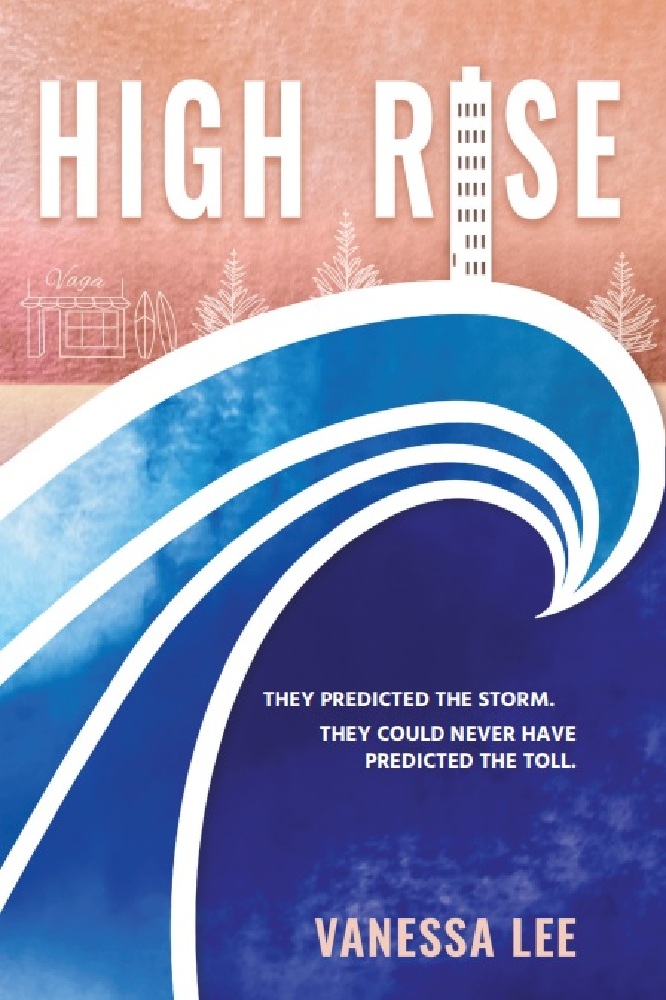One of the comments I have most enjoyed from a reader of my Cli-Fi (climate fiction) novel High Rise was that she “took home a great global warming message without feeling beaten over the head with it.”

Venessa Lee
That is the beauty of exploring the broad and unruly topic of climate change with fiction, which is the premise of Cli-Fi. The writer can use all manner of entertaining foils to draw in and distract the reader from what is essentially a very frightening premise, namely, the seemingly unstoppable future impact on our homes, communities and lives caused by years of rampant environmental abuse.
The Cli-Fi writer uses ensembles of lovable (or despicable) characters, sub-plots of dysfunctional relationships (even sex scenes, as I did!), and picturesque backdrops to provide light, humour and realism to a topic that is more often discussed in scientific reports and documentaries than in literature. It is exactly this “everyday, relatable feeling” that can draw in readers who may be feeling fatigued and disconnected by years of climate change statistics in the media, and which can also lead to a profound personal awakening when the reader ultimately recognises themselves on the page of the novel.
It is the hope of most Cli-Fi authors to spark the realisation that we will all ultimately be affected by climate change, but also - more hopefully - that we can all take small steps as individuals and communities towards adaptation. In this way, I consider Cli-Fi as a Velvet Glove of sorts; an uncomfortable but crucial message packed inside the rich, seductive exterior of fictional storytelling.
The diverse settings and stories falling under this genre are as broad as in any other category of fiction. Margaret Atwood was one of the first to enter the Cli-Fi genre in 2003 with "Oryx and Crake", the first of a trilogy that she completed ten years later. Her take on Cli-Fi is dystopian at its core, presenting a terrifying future where corporate greed, genetic engineering, and environmental degradation have led to the collapse of civilization.
While many Cli-Fi authors take the same approach as Ms Atwood to explore dystopian or speculative futures, there are also those who take a more moderate and realistic approach, focusing on contemporary or near-future scenarios that address climate change in a less extreme manner. Falling into this category is the award-winning book “Weather” by Jenny Offill, whose protagonist is Lizzie, a librarian and mother living in Brooklyn, New York. Through the snippets of conversations between Lizzie and her family and the eclectic characters who frequent her library, as well as her personal musings, the reader is exposed to the sense of unease and personal anxiety that many people today experience in the face of constant doomsday messaging about global warming. Some have said that Cli-Fi gives us a space to manage the grief and fear we collectively feel, and a glimmer of hope for what we can actually do about it.
I personally did not set out to write a Cli-fi novel per se. It was only after I had completed High Rise that I heard of the genre. Sea level rises simply became something I thought about a lot while visiting my home town, on the coast of Australia, in early 2022. It was directly after travel started opening up again after Covid and I travelled home to visit family and it was quite literally a washout. After weeks of rain, on my last morning there before flying back to Germany, I tried to walk past a beachfront restaurant. A huge post-storm king tide was surging up to the walls of the restaurant and I had the slightly apocalyptic thought: “One day people will need a snorkel to come to this restaurant!” This became the opening scene of my novel, before winding back to the present and describing the long, painful disintegration of the fictitious beachside community as relentless storms eventually started forcing businesses and families to pack up and leave.
My goal with High Rise is not to terrify people; rather, it is to spark conversation and curiosity about what we can already be doing today to adapt to new global realities. We should all be expecting more from our local governments and councils, for example, in long term housing planning and in making sure environmental codes are implemented in all buildings exposed to frequent storms (or wildfires, for that matter). We should also recognise that climate change impacts will hit harder for less economically advantaged communities than for wealthier ones, which is something we already see on a global scale in the forced migration of many communities in the Maldives after their homes became permanently submerged.
Cli-Fi is a helpful way to spark these conversations, which can then lead to action. But there is also one last, very important role of Cli-Fi. It can serve as a beautiful way to capture images and stories of the parts of the world that are most at risk. In my mind, what I have done with High Rise is also to preserve the traditions and rituals of the beautiful place that I grew up in. It has been therapeutic, like storing a message in a bottle. I personally hope and would encourage more and more writers in climate-vulnerable communities to document their stories for future generations.
The Book High Rise

High Rise is a contemporary novel about climate change and sea warming, which leads to more and more volatile weather patterns. But it’s told from the perspective of the grass roots level - communities, families and friend groups - to make it more engaging for readers.
Vanessa Lee wanted to personalise climate change through the eyes of real people and show the different reactions from denial, to apathy, to action. With High Rise she creates awareness and action for climate change policies by engaging readers with compelling fiction rather than dry statistics and news reports.
Author Bio
Vanessa Lee is an author and poet who was raised in a beachside community on Australia’s East Coast. She currently lives in Europe where she is at her happiest when hiking the solitary Alpine peaks of Italy, Switzerland and Austria with her family. Instagram: @vanessa_lee_writes
High Rise by Vanessa Lee is available from all good book retailers: https://bit.ly/HighRiseCliFi
Vanessa Lee is the author of High Rise, a book very much devoted to her hometown on the East Coast of Australia. You can find her on Instagram

